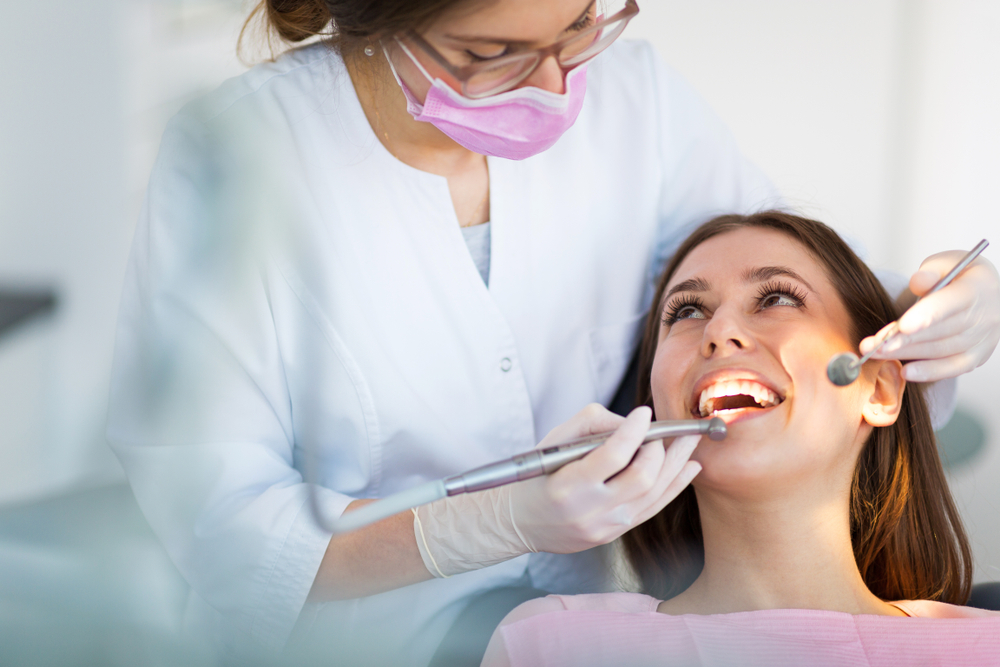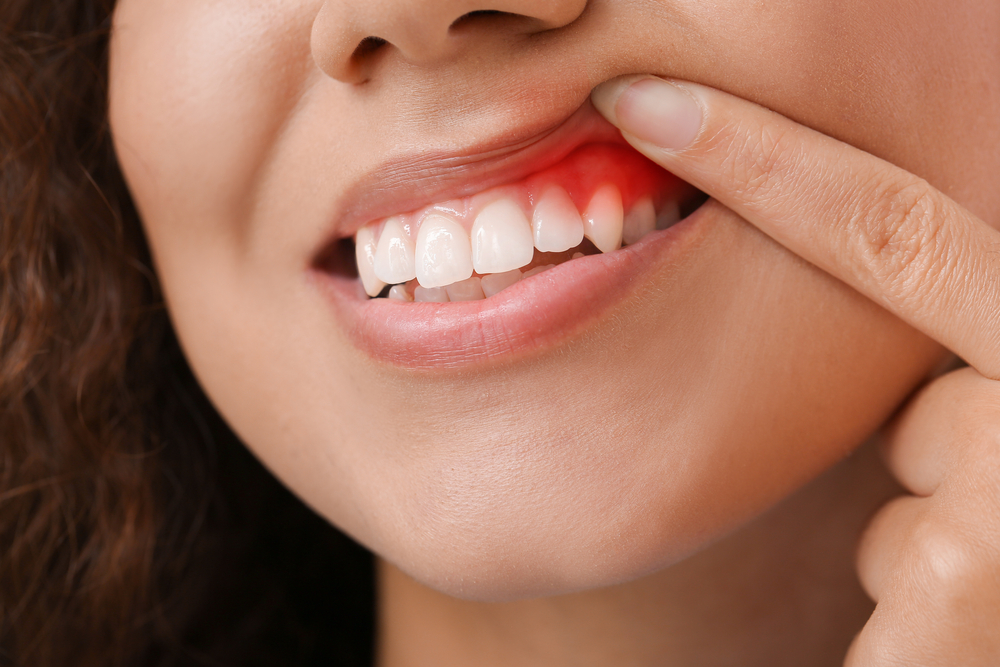What Is Gingivitis?
Gingivitis is the earliest stage of gum disease that affects the tissues that surround and support your teeth. It’s caused by the buildup of plaque on your teeth and gums. Plaque is a sticky film of bacteria that forms on your teeth and gums when you eat or drink. If plaque isn’t removed by brushing and flossing, it can harden into tartar, which can only be removed by a professional dental cleaning.
The bacteria in plaque can irritate your gums, causing them to become red, swollen, and bleed easily. If left untreated, gingivitis can lead to early periodontitis.
Symptoms of Gingivitis
The symptoms of gingivitis can vary from person to person. Common signs and symptoms of gingivitis include:
- Redness: The gums appear red or reddish-purple instead of their normal pink shade.
- Swelling: The gums become swollen or puffy, making them appear larger than usual.
- Bleeding Gums: Gums may bleed during brushing, flossing, or even while eating. Blood can be seen on the toothbrush or in the saliva.
- Tender or Sensitive Gums: The gums may feel tender or sensitive to touch. They may also be painful or uncomfortable when pressure is applied.
- Bad Breath: Persistent bad breath, also known as halitosis, is a common sign of gingivitis. It occurs due to the presence of bacteria in the mouth.
- Receding Gums: The gum line may start to recede or pull away from the teeth, exposing the roots of the teeth.
- Loose Teeth: In some cases, gingivitis can lead to loosening of the teeth or changes in their alignment.
If you experience any of these symptoms, schedule an appointment with our dentists in Virginia as soon as possible. Early detection and treatment of gingivitis can prevent it from progressing to a more serious form of gum disease.
How to Treat Gingivitis
Several steps can be taken to treat gingivitis.
- Improve Oral Hygiene: Brush your teeth at least twice a day using a soft-bristled toothbrush and fluoride toothpaste. Make sure to brush along the gumline and all tooth surfaces. Floss daily to remove dental plaque and food particles from between your teeth.
- Use Antiseptic Mouthwash: Rinse your mouth with an antiseptic mouthwash after brushing and flossing. This helps reduce bacteria and plaque.
- Professional Dental Cleaning: Visit your dentists for professional dental cleanings. A dental hygienist will thoroughly clean your teeth, removing plaque and tartar buildup that can’t be eliminated through regular brushing and flossing. They may also recommend a deeper cleaning, such as scaling and root planing to reverse your gingivitis symptoms.
- Maintain a Healthy Diet: Limit your consumption of sugary and acidic foods and drinks, as they can contribute to gum inflammation. Instead, opt for a balanced diet rich in fruits, vegetables, whole grains, and lean proteins.
- Quit Smoking: Smoking weakens the immune system and makes it harder for your gums to heal. Quitting smoking can significantly improve the health of your gums.
- Manage Stress: Chronic stress can affect your oral health. Find healthy ways to manage stress, such as regular exercise, relaxation techniques, or seeking support from loved ones.
- Regular Dental Checkups: Visit your dentists for regular checkups. They’ll monitor the condition of your gums and provide necessary guidance and treatment.
Gingivitis Treatment Costs
The costs of gingivitis treatment can vary depending on several factors, including the severity of the condition, the recommended treatment plan, and the geographical location. General cost estimates for common gingivitis treatments are:
- Professional Dental Cleanings: The cost of a routine dental cleaning can range from $75 to $200. However, if there’s a significant buildup of plaque and tartar requiring a deep cleaning, also known as scaling and root planing, the cost can be higher, typically ranging from $200 to $400 per quadrant of the mouth.
- Antibiotic Therapy: In some cases, antibiotics may be prescribed to treat gingivitis. The cost of antibiotics can vary depending on the specific medication prescribed and whether it’s covered by insurance.
- Additional Treatments: If gingivitis has progressed to a more severe stage or if there are other underlying dental issues, additional treatments may be required. These can include periodontal surgeries, gum grafting, or other specialized procedures. The costs for such treatments can vary significantly.
Complications of Gingivitis
When left untreated, gingivitis can lead to advanced gum disease or other serious health conditions. The inflammation caused by gingivitis can spread from gum tissue to the supporting structures of the teeth, such as the bone and ligaments, leading to a more advanced form of gum disease called periodontitis.
With untreated periodontal disease, patients may experience the destruction of the bone and tissue that hold the teeth in place, leading to tooth loss. If you’re experiencing symptoms of early-stage gum disease, see a dental professional as soon as possible.


